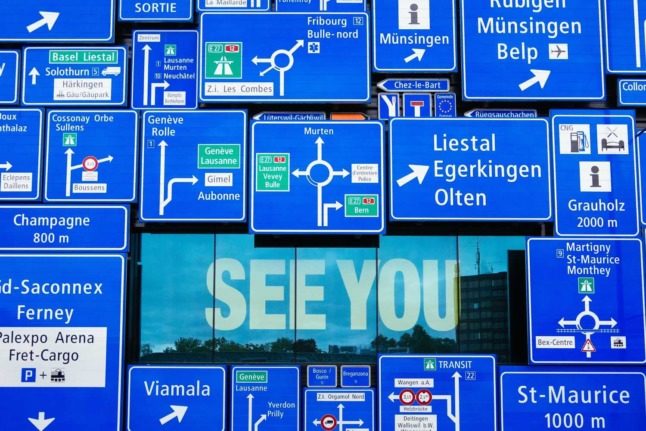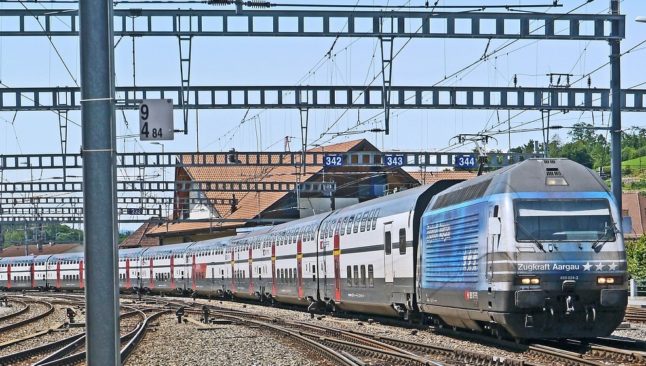On Monday, September 20th, Switzerland put through its latest update to the entry rules.
While the press release announcing the rules said they would apply “irrespective of where (someone) is traveling from”, in effect the country of departure will make a significant difference to the rules on arrival.
READ MORE: Switzerland confirms only vaccinated Americans and Brits can enter
Here’s an overview.
What are the new rules?
After a summer where entry rules had been somewhat relaxed – although of course not to pre-pandemic levels – Switzerland in early September announced stricter rules would come into play.
The rationale for the change was increasing Covid cases, higher hospitalisations and the country’s low vaccination rates.
Whether you are vaccinated – and where you are arriving from – will be crucial in determining whether you can enter.
Everyone who arrives – vaccinated or unvaccinated – will need to fill out a form (explained below).
OK, so I’m vaccinated. Can I enter Switzerland?
For anyone who is vaccinated, the new rules will mean unrestricted entry, regardless of where you are travelling from.
You do not need to show a negative test and you do not need to have Switzerland’s Covid certificate, although you will need proof of vaccination.
The list of vaccines accepted for entry into Switzerland is relatively broad and includes several vaccines which are not approved for use in Switzerland itself.
The list can be seen at the following link.
UPDATE: Which vaccines are accepted for entry into Switzerland?
I am unvaccinated. Can I come to Switzerland?
Unvaccinated people from countries not on the SEM high-risk list will not be banned from entry.
However they will have to complete two negative tests or show proof that they have recovered from the virus in the past six months.
When arriving, they must show proof of a negative test upon arrival in Switzerland, regardless of the means according to which they have arrived (i.e. rail, air, car or foot).
Four to seven days later, they will have to undergo another test, which they must pay for themselves.
Both PCR and antigen results are accepted.
The rules are much tighter for the unvaccinated from high-risk countries, who are banned from entry.
Even those who have had the virus and recovered the past six months or those who have tested negative will not be allowed to enter.
Which countries are ‘high risk’?
As at September 20th, this high-risk list included the United States, the United Kingdom, India, Israel and several other countries.
Most European countries and a handful of other nations across the globe are not considered high risk.
The official list can be seen here.
What about the exceptions?
Please keep in mind that Swiss citizens and residents are allowed to enter regardless of vaccination status, as are Americans or Brits who have a valid visa for a Schengen or European Union country.
The test and entry form requirements do not apply to travellers in transit through Switzerland without stopping, drivers who transport people or goods professionally, cross-border commuters, and people entering from border areas.
Children under 16 are also exempt from the test requirement, according to the Federal Council.
If you are unsure of whether you can enter Switzerland, the Swiss government has developed an interactive tool to check your credentials.
The tool is anonymous and can be found at the following link.
‘Travelcheck’: This tool shows you what you need to enter Switzerland
What form do I need to fill out?
All travellers– whether vaccinated, recovered or with a negative test – must also complete the passenger locator form before entering Switzerland.
“This will enable the cantons to carry out random checks to determine whether people who have not been vaccinated or have not recovered and who entered the country with a test have actually taken the second test after four to seven days”, the Federal Council said.
Whoever violates these rules could incur a fine of 200 francs for entry without a test certificate and 100 francs for an incomplete form.
READ MORE: Here is the form you need to enter Switzerland
You will also need to get a Swiss Covid certificate to do most things in Switzerland. More information about this is available here.



 Please whitelist us to continue reading.
Please whitelist us to continue reading.
Member comments